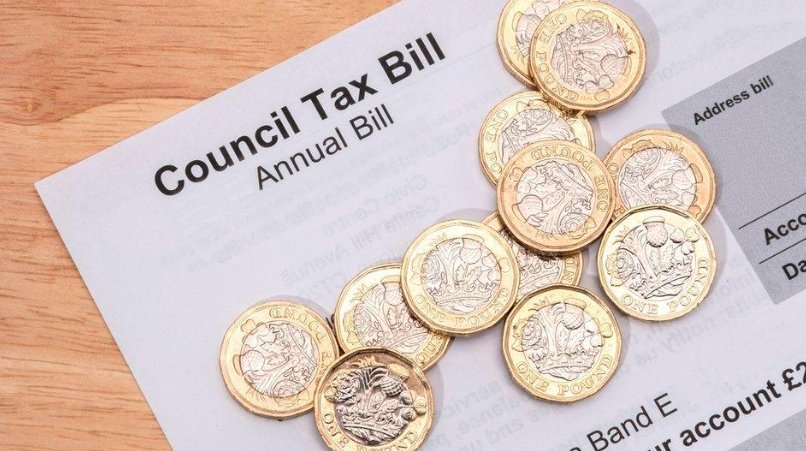Scotland’s property tax system is running on numbers more than three decades out of date — and one senior minister just reignited the fire under it. But within hours, that spark was quickly doused by the Scottish Government.
Ivan McKee Says What Others Won’t
Speaking to BBC Scotland News, Public Finance Minister Ivan McKee said a full revaluation of council tax bands was “absolutely needed” and plans were already being worked on behind the scenes.
The comment sent ripples through Holyrood and beyond — particularly because any revaluation would hit some households hard, moving them into higher tax bands based on their current market value, not their 1991 valuation.
“There would be winners and losers,” McKee admitted plainly.
And there it was: the sentence that instantly made this more than just policy chat.

Council Tax Still Based on 1991 Prices
It’s almost surreal when you look at it.
Scotland’s entire council tax banding system is still based on property values from April 1, 1991. That’s when Nirvana’s “Nevermind” was still on the charts, and the average house price in Scotland was just over £52,000.
In 2024, that number was around £210,000.
This means many homes that were modest in 1991 are now worth small fortunes — but are still paying relatively low tax. Meanwhile, others that haven’t appreciated much are stuck in higher bands than they probably should be.
It’s created what even government ministers admit is a fundamentally unfair system.
Then… the U-turn
But just hours after McKee’s interview aired, the Scottish Government issued a clarification — or rather, a pullback.
They said there were no active plans to hold a revaluation, and current discussions were only meant to “inform public debate” — not lead to immediate legislative change.
That quick reversal suggests one thing: this issue is still politically toxic.
A full-scale revaluation would be akin to walking into a minefield. Imagine telling homeowners in affluent suburbs their tax bills are doubling — during a cost of living crisis? That’s a tough sell, even for a party with a progressive base.
Who Wins and Who Loses?
So, what would a revaluation actually look like in practice?
The honest answer: messy. And sensitive.
But here’s how it might shake out:
-
Winners: Rural areas, lower-value homes, many properties in poorer urban neighbourhoods.
-
Losers: Gentrified city zones, wealthy suburbs, any property that’s seen major appreciation since 1991.
-
Stagnant: Homes already fairly matched to current band values.
One sentence for impact: If your £85,000 house in 1991 is now worth £550,000, you’re likely going up several bands.
The Numbers Don’t Lie
Let’s break it down with a simple comparison. These are average house prices vs current council tax banding assumptions:
| Property Band | 1991 Value Assumption | 2024 Avg House Value (Est.) | Change in Real Terms |
|---|---|---|---|
| Band A | Up to £27,000 | ~£90,000 | +233% |
| Band C | £45,001 – £58,000 | ~£180,000 | +210% |
| Band E | £80,001 – £106,000 | ~£300,000 | +188% |
| Band H | Over £212,000 | £1.2 million+ in hotspots | +400-500% |
The gap between actual value and tax band is glaring — and widening.
Why Not Scrap It Entirely?
Worth noting, this isn’t the first time the council tax has been in the firing line.
The SNP’s 2007 manifesto promised to abolish it entirely, replacing it with a local income tax. That didn’t happen. Then in 2014, Nicola Sturgeon set up a commission to explore alternatives. Still, no change.
Since then, talks between the Scottish Government and Cosla — the umbrella group for local authorities — have dragged on.
Every so often, the idea of property revaluation or full replacement bubbles back up. Then dies quietly in committee.
One paragraph. One sentence: It’s become a kind of ghost policy — always discussed, never delivered.
The Political Problem
So what’s stopping it?
A few things:
-
Fear of backlash from middle-class homeowners
-
Electoral consequences in suburban swing areas
-
Lack of consensus across councils and political parties
-
Complexity of reassessing every property in Scotland
It’s not just about tax fairness — it’s about who gets blamed when bills go up.
Even within the SNP, there are mixed views. Progressives want reform. But realpolitik says: not now, not with an election near.
So Where Does That Leave Us?
At a familiar crossroads — again.
Revaluation is needed. Almost everyone agrees. But as soon as someone says it out loud, the ground shifts.
McKee’s comments might have just been honest — a rare political moment of saying the quiet part out loud.
But the immediate denial from government spokespeople shows the real message: not yet. Maybe not ever.
Until that changes, Scotland’s property tax system will keep pretending it’s 1991.


















